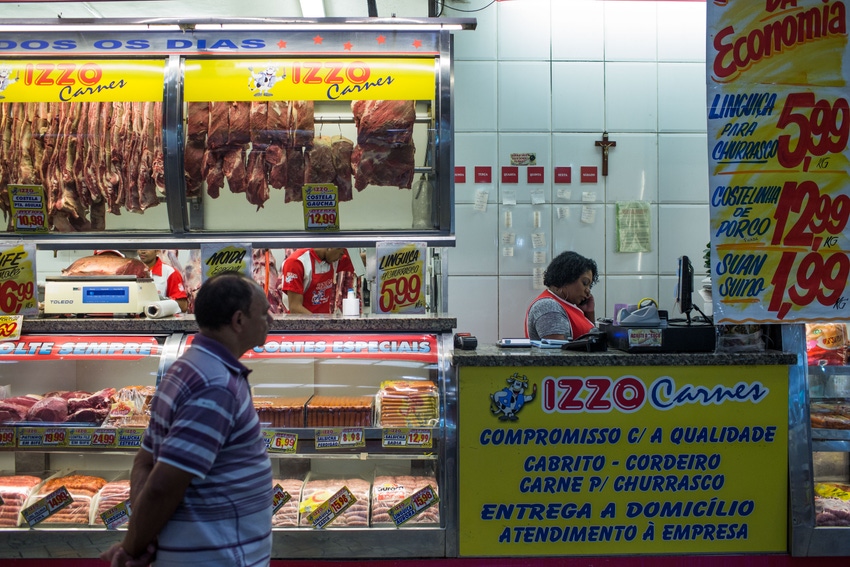Trust gone in 60 seconds or less
Brazil meat exports fell by 19% last week to a tune of $50.5 million a day, but the real cost in losing consumers' trust is yet to be tallied.
March 28, 2017

Market access to consumers worldwide without barriers adds significant value to agriculture products in any country. Being globally dependent can be risky as trade can be halted on a dime. A lesson the Brazilian meat industry is currently enduring.
Quickly after the news of large food fraud, Operation Weak Flesh, was uncovered by Brazil police, major meat importers started slamming trade doors to prevent unsafe meat from reaching its consumer. Even though, at first, beef was the main protein involved, countries quickly issued broad trade bans on poultry and pork as well. After all, if police conduct a large raid revealing employees at your meat processor bribed inspectors to ignore abuses and forego meat inspection, you take action. Unsafe food is something no one wants.
The Brazilian government and its meat sector rushed to get the facts on the table, calling the entire announcement of Operation Weak Flesh a “misunderstanding” and offering clarification to its trading partners.
Similar to the United States, Brazil’s meat industry relies heavily on its global partners. According to data from the Ministry of Agriculture, by 2020, domestic beef production is expected to supply 44.5% of world demand, while chicken meat will have 48.1%, and pork, 14.2%. “No other national sector has numbers like these,” representatives from protein association boldly state in a statement defending the country’s meat qualities.
As fast-talking government officials offer clarifications, general trade bans one-by-one were lifted, but the damage was already done to the entire meat sector. Within days of the police announcement, local new sources report that meat from Brazil was being pulled off shelves in grocery stores and food chain establishments of its leading trade partner, China.
The Brazilian Association of Animal Proteins discloses the country lost $40 million in chicken and pork exports in one week as result of bans in China, Hong Kong, Egypt, Mexico and Chile. Also, the blockades represent 20% of the revenue from chicken exports, 33% from international pork sales and 14% from turkey shipments. Considering revenues from all sectors, losses are equivalent to 22% over the total forecast of US $185.7 million for shipments of products in one week (based on weekly averages previously made).
To put it in perspective, Brazil's meat exports fell by 19% last week to the tune of $50.5 million a day, according to Reuters.
Still, consumers’ fear will trump any other concern despite the facts presented. The real cost of Operation Weak Flesh is larger than the actual price of lost sales during the bans. In seven days or less, the trust between farmer and consumers was dismantled. Sadly, beyond the control of the livestock producer, the consumer decided in 60 seconds or less that all Brazilian meat is unsafe.
You May Also Like



